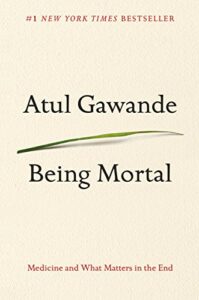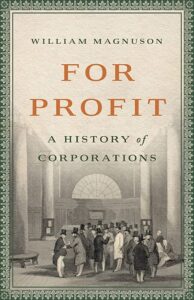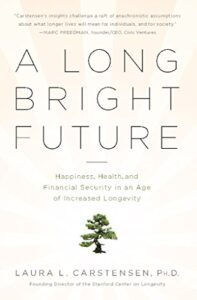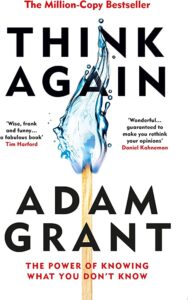Summer is here! This is probably my favorite time of year because two vastly different energies coexist. On one hand there’s excitement for what’s to come as vacations are afoot, grills are heating up, and kids are done with school. Yet, on the other hand, it’s a great time to slow down and take a breath from the frenetic start of the year. Finding the right balance is one of the keys to a successful summer. One way I relax over the summer is by spending a little more time reading.
Blog devotees may remember my past summer reading recommendations from 2020, 2021 and 2022. This year, in addition to providing my own book recommendation, I asked for recommendations from some of my fellow Advisors. Each of these books are beloved by those who picked them, and I distinctly remember a few of them circulating between our offices when they were released.
Whether you’re having an active summer or taking it easy, I hope reading is a part of it.
The Psychology of Money by Morgan Housel
Recommended by Mickey Abeshaus, MD, CFP®:
“Before reading Morgan Housel’s The Psychology Of Money, take a few minutes and try to remember and jot down everything you have been taught about how to make financial decisions. Now forget all of it. In this eminently readable and entertaining book, Mr. Housel will teach you why almost everything you think you know about money is wrong. He will teach you what is right. You will not be able to stop yourself from making better financial decisions after reading this book. This is the best and most valuable book you will ever read about you and your financial well-being. You will end up richer and wiser for it. Enjoy!”
Being Mortal by Atul Gawande
Recommended by Vanessa Burke Lee, MBA, CPA, CFP®:
“I would highly recommend the book Being Mortal by Atul Gawande. The author has so many insights about aging and the end of life that come both from his professional life as a doctor and his own personal experience with aging parents. He describes some of the tough choices that arise around medical treatment and living situations and how to best maintain independence, dignity and joy in our later years. His compassion and understanding about this time of life for families really stood out and makes for an excellent read.”
For Profit: A History of Corporations by William Magnuson
Recommended by Cody Cassidy, CFP®:
“One book I recently enjoyed is For Profit: A History of Corporations by William Magnuson. We don’t often think about corporations beyond the logo, product offering, stock price, and – in some instances – the eccentric or iconic CEO/founder. Some of these companies make for a great story on their own. But what is a corporation’s role in society? What is the purpose of the corporation as a legal entity itself? Why does it exist? This is a great book that attempts to address these questions by exploring the origins and essence of various corporate entities throughout history, including the bank, the stock, the monopoly, the multinational, and the start-up. This is, admittedly, not the same type of page turner as a Jack Carr novel (I’ll be reading his newest story over the weekend), but it is excellent, accessible, and engaging in its own right. If you like a little history, a little academic, and a good story, you’ll enjoy this one.”
A Long Bright Future by Laura L. Carstensen, PhD.
Recommended by Guy Holman, CFP®:
“In A Long Bright Future, Laura takes an academic’s view of how we have quite suddenly increased our life expectancy by three decades and how society/culture is still trying to catch up. She touches on issues around the financial component of this and how there is still a mismatch between how we look at our finances vis-à-vis this change. It is written not to scare, but to make us aware that we have been given a great gift that now needs to be managed.”
Think Again by Adam Grant
Recommended by Jennifer Means, MBA, CFP®:
“As someone who is analytical by nature, I was drawn to Think Again because I enjoy challenging that part of myself. Throughout Think Again Adam Grant shows readers how to rethink their approach to things they don’t know. Instead of being afraid of not knowing, Adam teaches readers how to let down your guard and biases and see these situations as teachable moments. If you’re not afraid of these situations, you can be engaged and learn. We think we know things based on our own interpretation and analysis but it’s impossible to truly know the whole story for a myriad of reasons. Adam Grant reminds us to take this mindset into every interaction because it’s beneficial for everyone if we do.”







